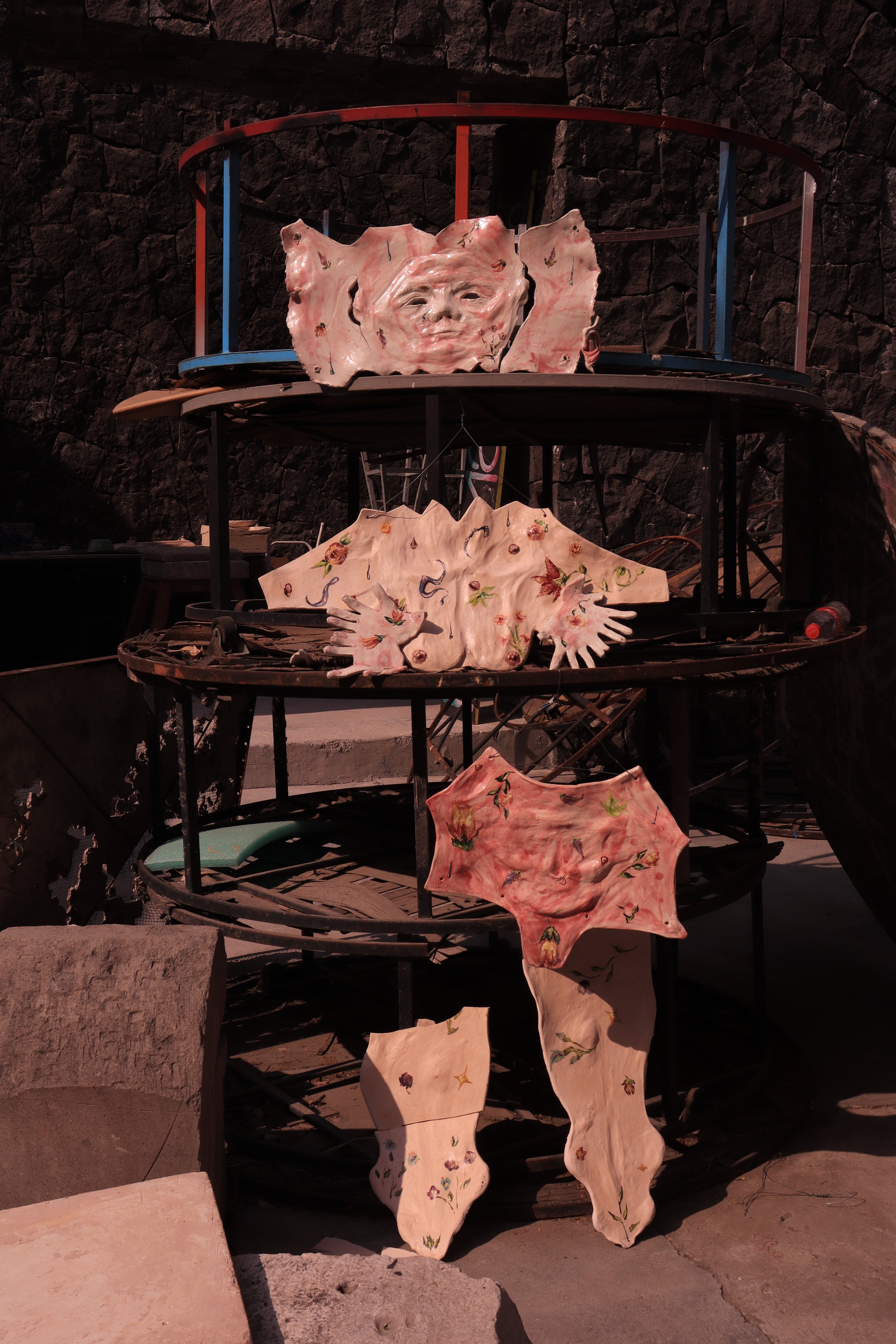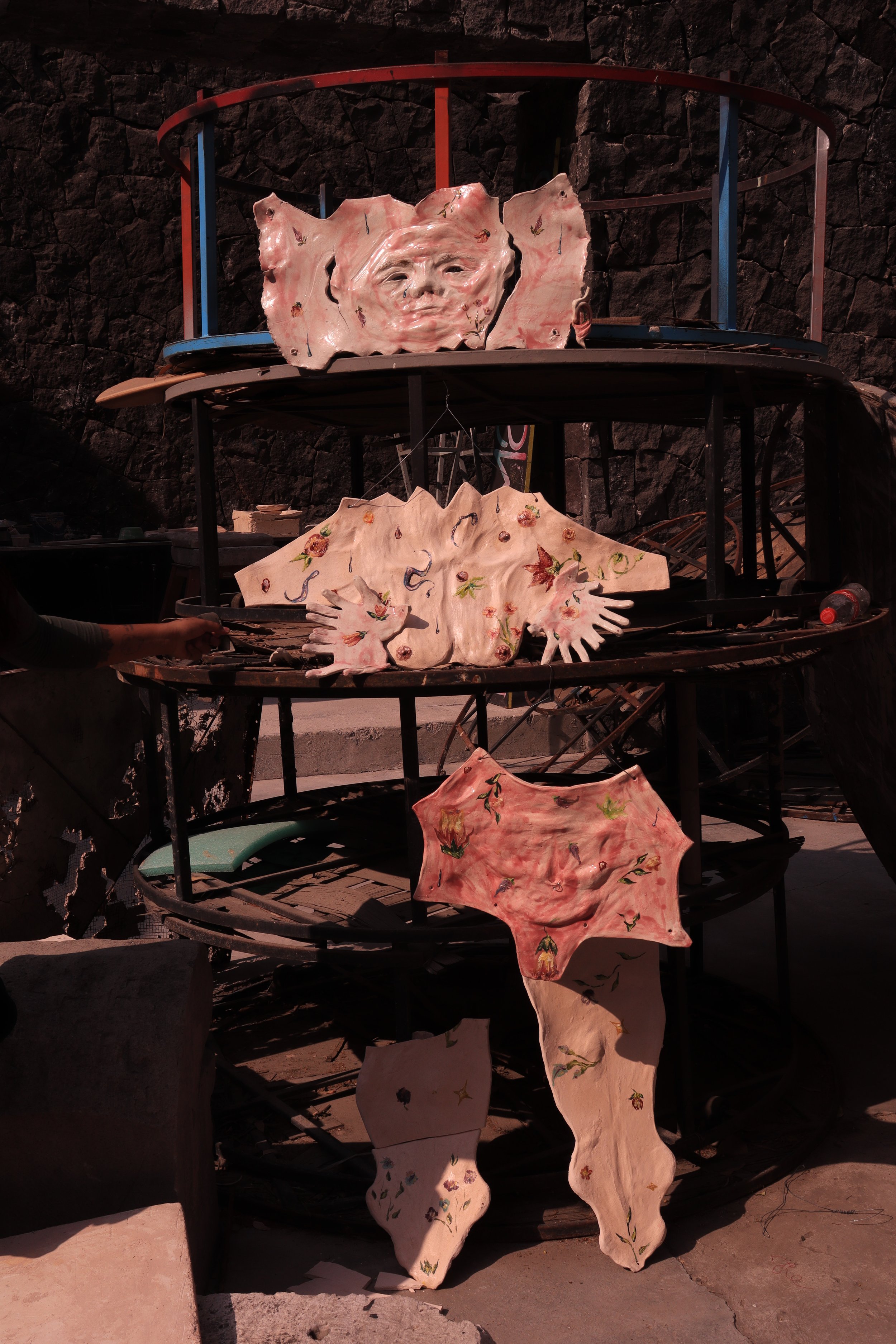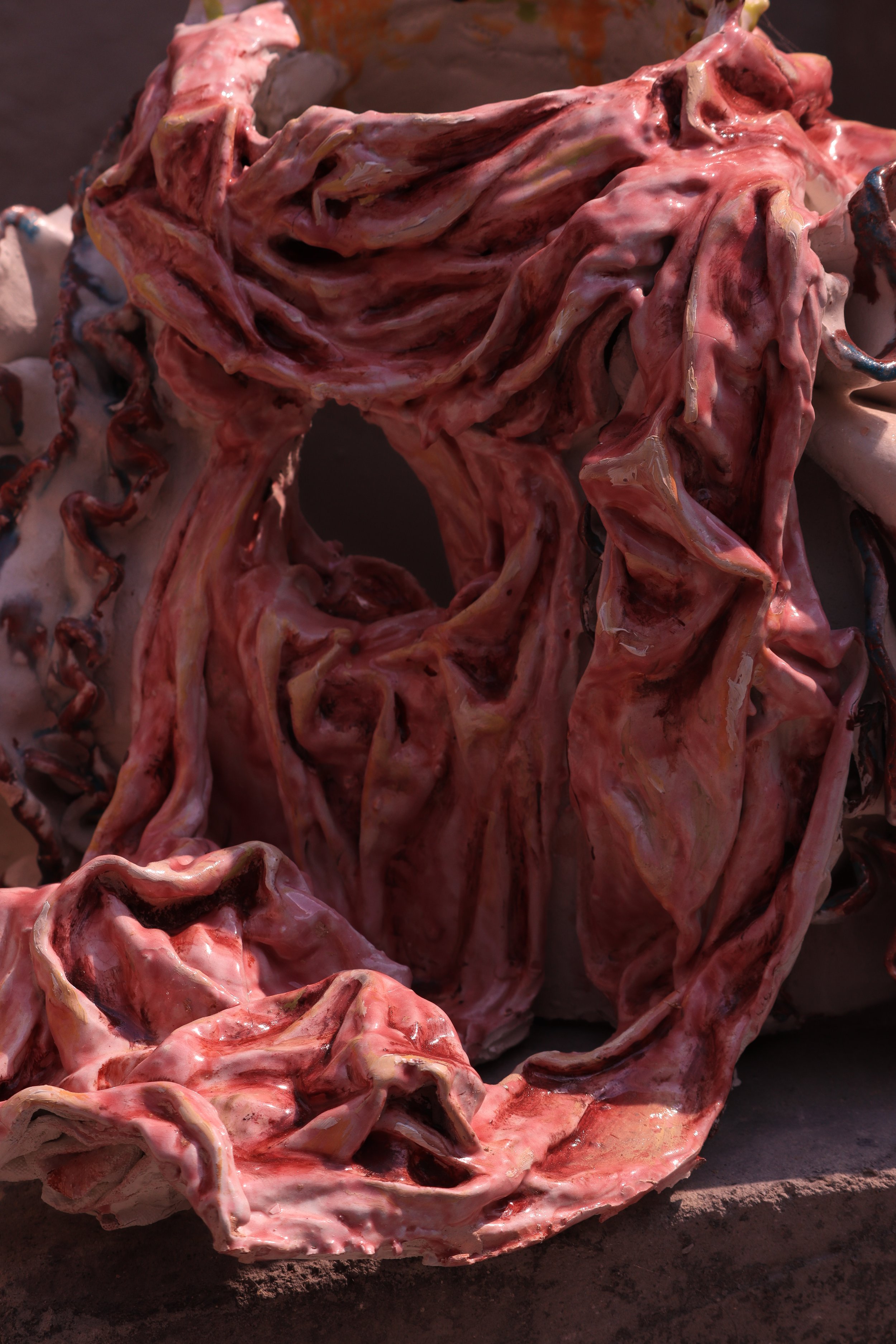
ADULTEZ:
UN ACTO INCONCLUSO
A solo show featuring works by Sofía Espíndola.
Curated by Sofía Espíndola & Amanda Garcia.
Adulthood: An Inconclusive Act is an exploration of adulthood as a social performance, examining the codes, expectations, and uncertainties that shape it. The exhibit has been divided in two, with a Part 1 opening April 10th, and Part 2 opening later this month.
Inspired by Judith Butler's theory of performativity, the project questions how we inhabit adulthood and how it becomes an act of constant simulation within a system that forces us to be products and productive. Butler argues that “performativity is not a singular act, but rather a repetition of acts” that constitute identity (Gender Trouble), and similarly, adulthood is shaped by the ongoing performance of roles, expectations, and norms imposed by society. Adulthood is not a goal or a fixed state, but an ongoing process that is constantly reiterated within a system that demands productivity and conformity.
As adulthood becomes a performance of societal expectations—where the individual's existence is measured by their productivity— Jack Halberstam's notion of "failure" offers a provocative counterpoint. In The Queer Art of Failure, Halberstam argues that rejecting conventional markers of success and embracing failure allows for the creation of alternative ways of being and existing outside normative expectations. This idea challenges the linear narrative of adulthood, suggesting that the performance of success and stability is not the only way to inhabit adulthood. This rejection of societal expectations can be seen in the works of the exhibition, where emotional vulnerability, disarray, and uncertainty are highlighted as valid experiences of adulthood— challenging the pressure to maintain a facade of control and productivity.
Lauren Berlant’s exploration of the “sentimentalization” of adulthood further deepens the exploration of these expectations in the exhibition. In The Female Complaint, Berlant critiques the way adulthood is often presented as a narrative of responsibility, stability, and personal achievement, and how this sentimentalization disguises the emotional labor and vulnerabilities that accompany it. The works in this exhibition expose the cost of adult roles that are emotionally exhausting, revealing that beneath the desire for stability lies a constant negotiation of uncertainty, mental health struggles, and the disillusionment that comes with the relentless pressure of societal expectations.
Through various pieces in ceramics, painting, photography, and textiles, the exhibition draws a parallel between different generations of artists and their experiences with adulthood. Among these pieces is a painting with a constantly dripping faucet, keeping the canvas in a perpetual state of dampness, symbolizing the emotional and physical weariness of young adulthood— sleepless nights, unpaid bills, the pressure of work and education. The water, representing contained tears, seeps everywhere, reflecting the vulnerability silenced by the demands of functionality in adult life.
A series of cyanotype photographs with embroidered phrases documents everyday scenes, such as subway rides and household disorder. The embroidered words— “Who takes care of me now?” and “Does one ever stop pretending?”—question the emotional toll of daily responsibilities, the constant simulation of control, and the anxiety of not knowing if certainty will ever come.
Ceramic pieces shaped like shed skin, suspended from clothing hooks, represent the outward appearance of adulthood, worn daily as if it were a uniform hung up at the end of the day.
The piece Cobijo cálido, a collaboration with artist Xazú, reflects on emotional bonds in adulthood, especially in the face of solitude. The woven blanket represents the warmth of companionship and emotional resilience against the melancholy inherent to adult life, particularly after Xazú’s recent loss of her mother. It evokes the idea of affective bonds as a network of containment, offering comfort amidst the uncertainties of adulthood.
These works not only illustrate the external pressures of adulthood but also highlight the internal tension between vulnerability and the societal demand to perform, simulate control, and be productive. They speak to the physical and emotional costs of conforming to an ideal of adulthood that may never align with lived reality.
Written by Sofía Espíndola & Amanda Garcia.




























